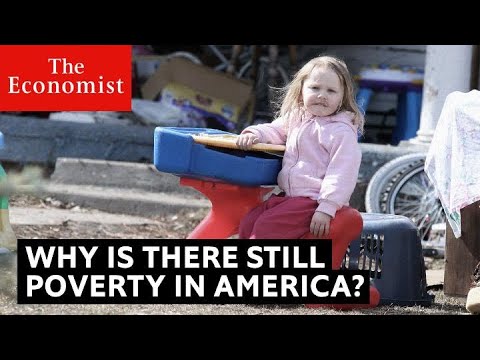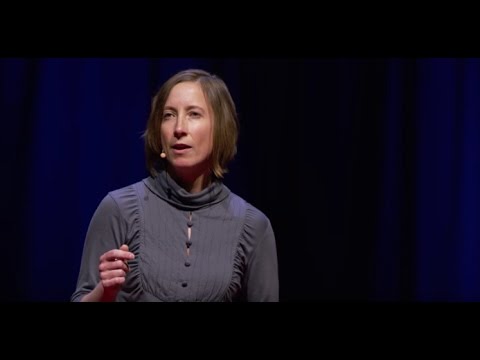Impacting communities in poverty
![]()
What then must we do?
Twice per month, our urban church hosts a community meal. I admire the planners, cooks, servers, clean-up crews, and especially those who sit and talk to the people who come in. By now, it is a tight-knit group with steady attendance. Meals are not only served but packed up for ‘take aways’ so that the people back ‘home’, such as the disabled or elderly, will be fed, too. Some of us are good at conversing with the folks who come to eat, others serve in the line, while those as shy as I do the clean up and wonder if we should be more friendly. We hope that our little area of volunteering is needed, too.
Is helping the poor really about whether to give to your local food pantry, or is it about solving the epidemics of poverty and drugs? Lobbyists, advocates, and politicians are different from those at the soup kitchens. Does one stratosphere matter more than the other?
Both immediate charity work and systemic help are needed. A dear friend of mine who used to work with Habitat for Humanity says that adapting the ‘starfish’ image is helpful. Starfish wash up on the beach; some people walk along the beach and throw the individual starfish back into the ocean so that each can survive, while others work on the larger issues such as how to keep the starfish in their ocean homes in the first place. My friend also uses the ‘broken bone’ imagery: some of us can take care of the immediate pain from a broken bone, while others are best suited to go to the place where the break happened and figure out how to prevent people from falling down.
Where do we fit into the big picture? There was a recession caused by predatory lending, in which people who never thought they would be living in their cars, were. Presently, there is a horrendous, intentionally caused drug epidemic. Couch surfing at colleges that are located in cities has become common. Students can’t afford exorbitant rents and must move from place to place, while trying to study and work. Of those who have lost jobs, then homes, Pastor Matthew Swora of the Zion Mennonite Church of Hubbard, Oregon writes, “[It is] not that people have no address, but that they go through many addresses, the first one foreclosed and with a tax lien, others on friends’ couches, over a short period of time.”
Then there is the problem of diapers and other hygiene products, which are not often paid for by government programs. These programs are complicated, but they can and should become more human. Below is a clip about a woman who has made a mission of handing out diapers.
Do we have to accept that the poor are always with us: the widows, children, the jobless, and strangers? Must we accept the current costs of housing, rents, and health care? Do we recognize that some of us are a serious illness or a downward job turn away from destitution?
Let us listen to Teva Sienicki in her 2016 Growing Home TED talk in Denver, Colorado. She does not accept poverty as inevitable. (At the risk of copying, I’ve taken notes from her talk and applied them below for those who don’t have the time to hear her. She does speak her message much better than I write it.)
At the time of this talk, Sienicki was CEO of Growing Home, an organization that provided shelter and food for about thirty families a year.
One day, a young woman with baby and toddler approached Sienicki and asked for shelter. The woman said that years ago she was a child at the shelter with her mom. She had quit high school and now worked in a big box store. Sienicki was discouraged. The girl, who had been a bright child, had recycled into poverty. Although she was part of a good nonprofit organization, Sieniki began to worry that her program was only a right of passage for the poor, not a forward-moving solution. She wasn’t helping people develop self sufficiency against intergenerational poverty.
The stresses of poverty can ‘rewire’ the brains of poor children, she says. Resilience, reading, and math are much harder; kids fall behind and can’t catch up.
Sienicki thought about how good, committed helpers might be getting things wrong:
1. We have given poverty to the heart, to the churches and charities, relying on them to carry the whole burden of improvement.
2. We need to address the issues that create poverty and not place the burden of escaping poverty on the poor themselves. We need to find ways to continue to raise the minimum wage and teach every kind of job skill.
Sienicki tells of a woman who gave birth to triplets and lost her home because she had had to be in the hospital for a month. The kids were still in the NICU, while the mother was now working at a fast food restaurant, traveling two hours each night to see her babies, and trying to find a place for all of them to stay.
Sieniki studied research on the the ecosystems in which people grow up, finding that they matter immensely. The county in which one lives determines how she/he will grow up, and changing environments county by county (perhaps block by block) might change generational poverty.
Realizing that systems and policies needed to be reformed, Sienicki and her team started by listening (yes, that thing we are always telling each other to do!)
The team worked to empower ONE neighborhood, a 20 block area. They listened to what the citizens wanted. Their guiding principle was to do things with, not for, people. The neighborhood wanted parenting classes, and some people were willing to babysitting so others could become educated. They wanted help fighting for affordable housing, decent rents, and better landlords. Intergenerational work became key: early childhood intervention through third grade was instituted, help joining unions and getting immigration paperwork filled out were offered. The people combined their skills to create a better neighborhood culture. (Often people in poverty, though, have neither the time nor the inclination to become involved in community aid, as in: ‘How can I pick my community up by the bootstraps when none of us have boots?’ It is complicated.)

Photo by Wonderlane on Unsplash
Sieniki strongly believes that the poor do NOT have to be with us always. She asks us to consider the huge efforts we made to cure polio and put a man on the moon. Both were long term goals. We must stop blaming the poor for growing up poor and start looking at the systems that keep poverty going. Businesses as well as churches absolutely must be involved. We must invite, listen to, and involve the experts, who happen to be the poor themselves.
In 2017, a Kittleman report honored Sienicki by announcing her new job. What a difference one visionary can make:
“Teva Sienicki has been selected as CEO of Metro Caring, Denver’s frontier hunger-prevention organization. As CEO and President of Growing Home, Sienicki served as President and CEO of Growing Home, which offers dual-generation programs to nurture children, strengthen families, and create community in the North Metro Denver area. In this role, Sienicki acted on her passion to build equity and close the achievement gap for low-income children. Under her leadership, she transformed Growing Home, which began as a small shelter program serving 30 families, into a comprehensive anti-poverty organization that serves over 4,600 families annually.”
Cincinnati Mennonite Fellowship’s community meal crowd does not often attend our church services. One of the founding members of the meal told me that some Christians are shocked that we do not proselytize or push for those we help to attend our church. It’s not our way. We take care of physical and social needs. The spirituality of the endeavor is clear to everyone. There is no need to push. There are needs for a meal, a friendly face, and community.
Pastor Swora invites us to consider, “The homeless Jesus, who said, ‘Foxes have dens and birds of the air have nests, but the Son of Man has nowhere to lay his head (Matthew 8:20),’ who, at the end of this earthly life, had only the clothes on his back as an estate, is God’s address with us in the flesh, God’s walking, wandering inner sanctum, God’s holy of holies “tabernacling” among us in our exile, “east of Eden.” He goes on to suggest that Jesus stands at the door and knocks, and that church, synagogue, mosque or community organizations are not just about us. They are about something bigger: justice, fairness, and love.
Which organizations do you consider most effective in changing generational poverty? Where do you feel most comfortable and useful?
_________________________________________
I welcome your comments: gretaholtwriter.com/blog.
{Thank you to my niece, Addie (Liechty) Kogan, for taking the picture that is this blog’s featured image. Her blog is: https://addieswriting.wordpress.com.}
Best wishes and have a good week.
Greta


Thank you, again, Greta for an informative, thought-provoking, heart-reaching post. The huge, tragic poverty problem in our country is one that feels overwhelmingly complicated to me and one that I have spent much time in thought about what I can personally do to help alleviate in even some small way. There certainly are immediate needs to fill and I can help in that way with my heart. But helping on the systemic level, where change is necessary if we are to do more than just apply bandaids to gaping wounds, seems much less accessible to me. Teva Sieniki is truly inspiring and what she and others like her are doing is making some real changes on that level for several communities. But how can the rest of us, who do not work full-time on impacting this problem, help to make changes using both our hearts and our brains? The one thing that comes to mind is the voting booth, yet the shorter piece you posted by the Economist makes clear that ending poverty, especially when it comes to our children, is not a priority for most people running for or currently in office. I am feeling at a bit of a loss.
I agree with you about voting as a major factor in changing poverty. I’m going to a talk this week on the minute differences between capitalism and socialism. We may be at that point.